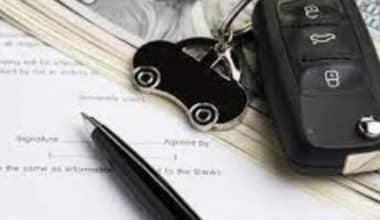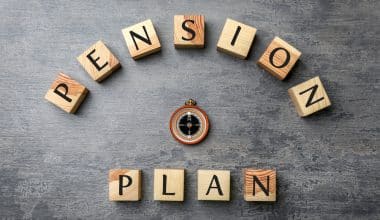Building good credit is an essential financial goal that everyone should strive for. Having good credit opens up a world of opportunities, from securing a mortgage or car loan to obtaining low-interest rates on credit cards. However, building good credit is not an overnight process. It requires a systematic approach and responsible financial habits. In this article, we explore the steps in building a good credit score fast and even provide tips to improve good credit from bad credit. Amazing huh? So, let’s delve in and discover the main steps to building good credit.
What Is Building Credit?
Building credit refers to establishing a positive credit history and a strong credit score. Credit is a measure of an individual’s ability to borrow money and repay it promptly. Having good credit is essential for various financial activities such as obtaining loans, renting an apartment, or even getting a job.
In addition, building credit involves using credit responsibly and making payments on time. You can do this by obtaining a credit card, taking out small loans, or making regular payments on bills such as utilities or rent. Over time, consistent and responsible credit usage can lead to an improved credit score, which opens the door to better opportunities and financial stability.
How Do You Build Good Credit?
You can build good credit in many ways. One of the fundamental ways is by making timely payments on all financial obligations, such as credit cards, loans, and bills.
Then, consistently paying bills on or before the due dates demonstrates responsible financial behavior and helps establish a positive credit history. Moreover, maintaining low credit card balances by keeping credit utilization ratios below 30% can also contribute to building good credit. Read on for fast steps to have a good credit score!
Steps In Building A Good Credit Score Fast
Building a good credit score is essential for financial stability and success. While it may take time to see significant improvements, here are steps to build a good credit score fast.
#1. Understand Your Current Credit Situation
Firstly, understand your current credit situation. This involves obtaining a copy of your credit report and reviewing it thoroughly. Then, pay close attention to any errors or discrepancies that may negatively affect your score. If you spot any inaccuracies, dispute them immediately. By recognizing the areas that need improvement, you can better strategize and create an action plan to address them.
#2. Pay Your Bills On Time
The second step to building a good credit score fast is to pay your bills on time. Payment history is a significant factor that lenders and credit agencies consider when evaluating your creditworthiness. Late payments can have a detrimental impact on your credit score, so prioritize making timely payments. You may ask: how? Well, set up reminders or automatic payments to ensure you do not miss any due dates.
Additionally, if you have any outstanding debt, pay it off as soon as possible. Hence, demonstrating responsibility by consistently meeting your financial obligations will gradually improve your credit score over time.
#3. Keep Your Credit Utilization Ratio Low
Next, keep your credit utilization ratio low. This ratio measures the amount of credit you use compared to the total credit available. A high utilization ratio can negatively impact your credit score.
To keep this ratio low, keep your credit card balances as low as possible and pay off your debts promptly. Additionally, avoiding unnecessary credit card spending can help maintain a low utilization ratio and demonstrate responsible credit management.
#4. Consider Diversifying Your Credit Mix
Finally, when building a good credit score fast consider diversifying your credit mix. This means having different types of credit accounts, such as credit cards, loans, or a mortgage. Typically, lenders prefer to see a mix of credit accounts rather than relying solely on one type.
Having a diverse credit mix, it shows that you can manage different types of credit responsibly. However, only take on credit accounts you can comfortably handle and avoid excessive borrowing. Diversifying your credit mix can help demonstrate your ability to handle different financial responsibilities and improve your credit score.
Steps In Building Good Credit From Bad Credit
Building good credit from bad credit can be challenging, but with the right steps, it is achievable. Below are some steps in building good credit from bad credit:
- The first essential step is to review and understand your credit report. Obtain a copy of your credit report from all three major credit bureaus and thoroughly review the information listed. Then, identify errors, discrepancies, or outdated information that might hinder your credit score. Dispute any inaccuracies with the credit bureaus and provide supporting documentation if necessary.
- Once you have a clear view of your credit report, the next step is to create a realistic budget and stick to it. Develop a detailed plan for managing your finances and prioritize paying off outstanding debts. However, start by tackling the smallest debts first because they will help you build momentum and motivation.
- Next, consider negotiating with creditors to settle outstanding balances or establish payment plans to make your debts more manageable. Remember to make timely payments and avoid any new negative marks on your credit report.
If you follow this plan and make responsible financial decisions, you can gradually build good credit and improve your overall financial health.
What Are The Types Of Credit?
There are several types of credit available to consumers, and each is to meet different financial needs or goals.
- Revolving Credit: One common type of credit is revolving credit, which includes credit cards and lines of credit. With revolving credit, the borrower is given a maximum credit limit and can borrow up to that limit as needed. The borrower must make minimum monthly payments, and the interest is on the remaining balance.
- Installment Credit: Another type is installment credit, commonly for purchasing big-ticket items like cars and appliances. With installment credit, the borrower agrees to pay back the loan in fixed monthly installments over a specified period. This includes both principal and interest.
- Open-ended Credit: Additionally, there is open-ended credit, which allows borrowers to borrow repeatedly without having to reapply for credit each time. This type includes personal lines of credit or examples like a home equity line of credit.
- Close-ended Credit: On the other hand, close-ended credit refers to loans that have a fixed term and are repayable within a specific time frame. Examples of close-ended credit include mortgages, auto loans, and student loans.
- Secured Credit: Lastly, there is secured credit, where the credit goes with collateral, such as a car or a house. Hence, this provides lenders with security in case the borrower defaults.
What Is A Good Credit Score?
A good credit score is a numerical representation of an individual’s creditworthiness and financial responsibility. It is a measure lenders, banks, and financial institutions use to assess the risk of lending money to someone.
Generally, a good credit score is above 700 out of 300 to 850. Meanwhile, a higher credit score indicates a lower risk of defaulting on loans or credit obligations. This means people with good credit scores are more likely to get loan approval, receive favorable interest rates, and have access to various financial opportunities.
What Are 3 Ways To Build Your Credit?
Here are three effective ways to build your credit:
#1. Open A Secured Credit Card
Secured credit cards are an ideal option for those with limited or poor credit history. To open a secured credit card, it requires a deposit, which determines your credit limit. By responsibly utilizing this card and making timely payments, you can demonstrate creditworthiness and gradually improve your credit score.
#2. Pay Your Bills On Time
Consistently paying your bills on time is one of the most significant factors in building credit. Late payments can have a detrimental impact on your credit score. Set reminders or automate your payments to ensure you pay them on time. Doing this shows you can establish a positive credit history and enhance your creditworthiness.
Another effective strategy to build credit is by becoming an authorized user on someone else’s credit card account, such as a family member or friend. The primary account holder’s positive credit activity will be reflected on your credit report, contributing to the growth of your credit score. However, choose someone with a strong credit history and good financial habits.
Why Build Good Credit?
Building good credit is crucial for financial success. A strong credit history can open doors to various opportunities, such as obtaining loans, securing rental agreements, and even getting hired for jobs. When you have good credit, lenders and financial institutions are more likely to offer you lower interest rates on loans, credit cards, and mortgages. This can save you substantial amounts of money in the long run. Additionally, building good credit demonstrates financial responsibility and trustworthiness, improving your overall financial reputation and making it easier to access financial resources.
Moreover, building good credit gives more financial flexibility. With good credit, you can access higher credit limits to make larger purchases or deal with unexpected expenses. It also gives a better chance of qualifying for credit cards with rewards and perks, such as cash back or travel points. In addition, having good credit can help you achieve important life goals, such as starting a business or purchasing a home. Overall, building good credit is a wise financial move that can provide numerous benefits and opportunities in various aspects of life.
What Are 5 Advantages Of Credit?
Here are five key advantages of using credit:
- Financial Flexibility: Credit allows individuals to make purchases and meet financial needs even when they don’t have sufficient cash. It provides immediate access to funds for emergencies, unexpected expenses, or transactions.
- Building and Improving Credit History: Properly managed credit can help individuals boost a positive credit history, which is crucial for future financial endeavors. A good credit history can lead to better interest rates, higher credit limits, and easier access to loans and other financial products.
- Convenient and Secure Purchases: Credit cards, for example, provide a secure way to make purchases. Additionally, they eliminate the need to carry large amounts, and they offer protection against fraudulent transactions and theft.
- Earn Rewards and Benefits: Many credit cards offer rewards programs that allow individuals to earn cash back, travel points, or other benefits for their spending. So, if you use credit for everyday purchases, you can accumulate rewards or perks for future purchases or travel.
- Emergency Preparedness: Lastly, credit can act as a safety net during financial emergencies. It can help cover unexpected medical bills, car repairs, or other unforeseen expenses.
Conclusion
Building good credit is a crucial step toward financial stability and independence. Therefore, following the outlined steps, you can control your credit and establish a positive financial reputation.






